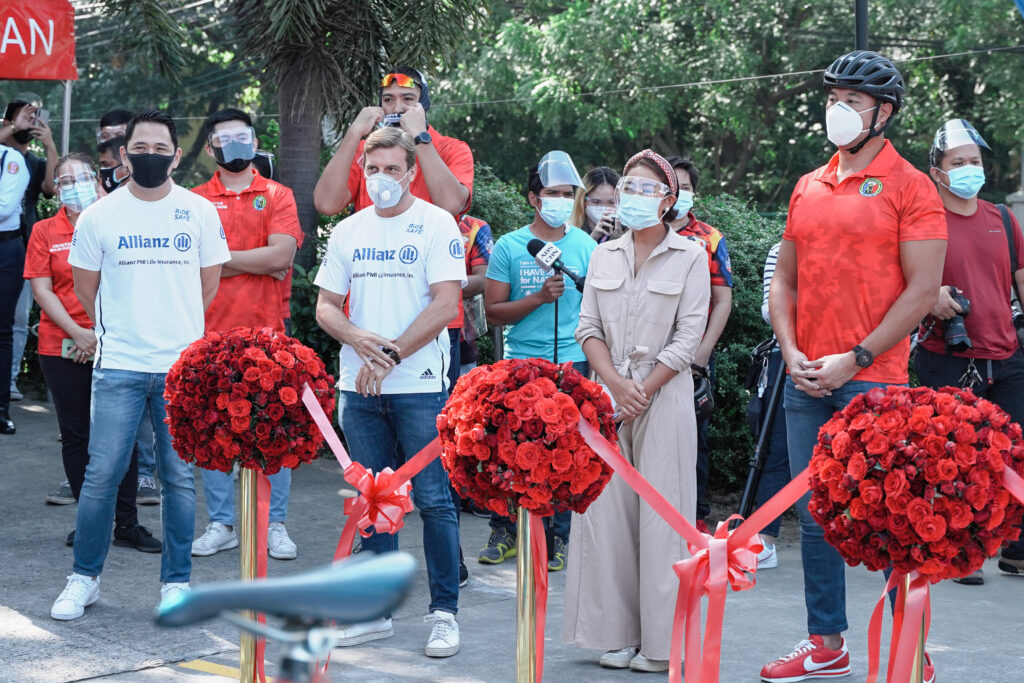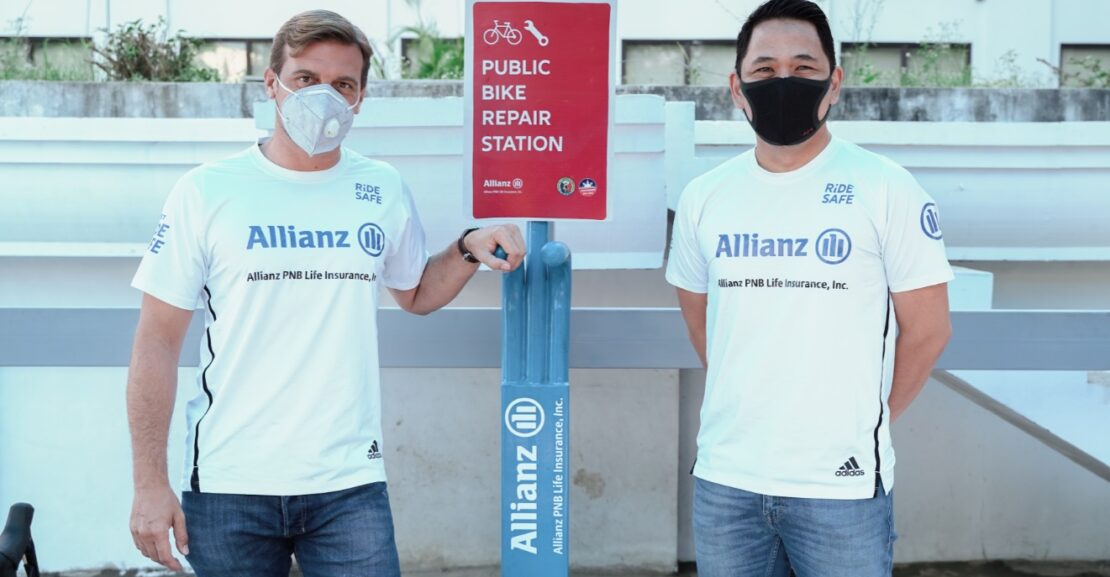As the need for social distancing forces governments around the world to reduce public transportation services, many have turned to bikes instead. In the Philippines, the uptick of bike users is even more notable not just because it has one of the highest coronavirus caseloads in Asia, but also because it has some of the region’s tightest urban congestion.
Despite the increased ubiquity of bikes due to the pandemic, Manila’s roads remain particularly hazardous for biking, in part because some drivers regard cyclists as obstacles. In fact, monitoring data from the Metropolitan Manila Development Authority indicated that bicycle accidents increased to 2,606 last year, compared to 1,759 during the previous year.

As part of its Ride Safe campaign, Lucio Tan-owned Allianz PNB Life is urging motorists to be more proactive participants in making the roads safer for bicycles. “Ride Safe is a campaign in support of cycling for sustainable cities. As a global sustainability leader, Allianz launched this campaign to encourage more Filipinos to rekindle an interest in cycling, which promotes low-carbon emissions and safe, green transport,” said Allianz PNB Life President and CEO Alexander Grenz.
Drivers sometimes feel that roads are for vehicles only, and that bicycles have no right to be there. Allianz PNB Life urges motorists to change this mindset, especially now that bikes are a lot more common due to necessity.
“We need to think of bike riders as equals who are just as entitled to the roadway as car drivers,” said Gino Riola, Chief Marketing Officer of Allianz PNB Life and a bike rider himself. “When we consider bikes as vehicles, we treat cyclists the same as motorists.”
One reason for the lack of awareness regarding road safety for cyclists is the absence of any law governing cycling and cycling safety standards. But with government officials working towards making the roads safer for bike riders, cars will be sharing the road with other modes of transport more safely than before.
According to Riola, a national law that promotes bike safety on the road is a very welcome change for the biking community, especially as more and more Filipinos now turn to bicycles for their daily commute.
Globally, Allianz has always been a staunch advocate of the environment and has topped the Down Jones Sustainability Index from 2017 to 2019, making it one of the world’s most sustainable insurers. With its Ride Safe campaign, Allianz PNB Life looks to encourage more Filipinos to cycle as a means towards more sustainable and livable cities. Last year, Allianz provided the City of San Juan new protected on-road cycling facilities, such as bollards and safety signs, as well the country’s first solar-powered bike pitstop.
According to Allianz PNB Life, bike safety is an essential component of this mission. “The national bike law is a much-needed step towards not just creating bike-friendly roads and communities, but towards building more sustainable cities,” said Riola. “After all, a bike lane isn’t just a bike lane that keeps riders safe, it’s also allowing people to switch to another mode of transport—to one that promotes health and doesn’t consume fuel.”
“Cars and bikes can co-exist. Other cities around the world have proven that,” said Riola. “What is needed is that motorists and bikers respect each other and the rules of the road are followed.”
If the many newly opened bike stores are any indication, bikes are here to stay. And that is good for drivers, the environment, and the community.

